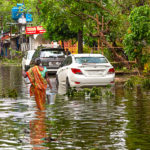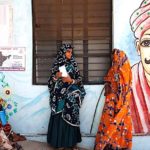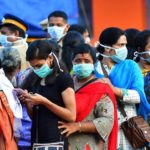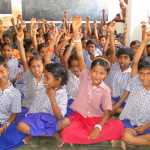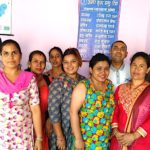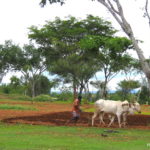Child Labour in India: The Missing Data & The Informal Economy
By Harris Zargar
Despite various efforts, child labour in India is still a common practice. Poverty forces children to seek jobs in undisclosed service sector and many are forced into prostitution, while many other become victims of human trafficking.Six Things to Know About Basic Income and Gender Equity: Lessons From India
By Marion Sharples
While certainly not being a one-stop fix-all solution, the progress that was made under a small-scale, temporary pilot should energise feminist advocates of basic income and serve as an inspiration for future work. The positive impact of basic income on poverty levels, women's self-respect, increased social inclusion and reduced scope for exploitation is greatly inspiring.“These are exciting times to be young in the developing world”
When many of her friends and colleagues were busy setting up their ambitious careers in big multinational companies, Nisha Singh, a management graduate of London Business School, UK and an electronics...
How Children are Trafficked and Sold into Bonded Labour in India
By Aarthi Gunnupuri
18-year-old Adhir Pasvan from the east Indian state of Bihar, was trafficked and turned into a slave at a shoe manufacturing unit 1200 miles away from home. According to government reports, an astonishing 100,000 children go missing in India every year and many of them are never found.India: researchers to predict flood damage using satellite data
As India recovers from the devastating effects of cyclones Amphan and Nisarga, water researchers at HR Wallingford in the UK are developing a method...
Women and Indian politics: gender and political participation in India
Patriarchy still posits deep-rooted challenges hindering women’s engagement with electoral politics in India. However, several steps in the country’s developmental approach have indicated a positive change in women’s participation as voters and as elected representatives.
Unconventional responses to unconventional time – Lessons from the Indian state of Kerala’s successful...
Timely interventions and health actions are not the only aspects that enabled the Kerala model of COVID-19 response to be unique. It focused a lot on preparing Kerala as a society to face this adverse condition by building people’s trust in its health system.
India’s New Education Policy: Coding education at grade 6, focus on achieving SDGs
The policy brings major changes in the areas of early childhood care and education wherein the pre-schooling years are in focus now.
Skills-based volunteering: The sustainable option for training grassroots NGOs
CDV Global (Community Development Volunteer Global) is a UK based company that provides pro-bono training and development to these grassroots NGOs through skills-based volunteering programmes.
Cinderella at the ball: Mainstreaming agroforestry for a resilient post-COVID India
Multi-functional agroforestry landscapes including diversified crops, trees, and animals are keys to social-ecological resilience. If current government reforms indeed succeed in the retention of a considerable fraction of the rural workforce, subsequent scaffoldings are capable of perpetual greening of India’s rural employment sector.






